Where the Jobs Are

This is the long-overdue Part 2 in our series about the new Launch program – a 10-month training program built from the ground-up to help young people break into the software development industry. Learn more and sign up for updates here.
One of the biggest flaws with American higher education it is the indifference to what happens after graduation. Universities are now required to publish outcomes data by way of the College Scorecard. That system has grown in depth over time, but the story told by the data is often bleak.
I looked at my alma mater, Arizona State University, which reports a 64% graduation rate. They also report that 10 years post graduation just 75% of those graduates are earning more than someone without a degree. Combine those odds and a person starting today faces a 48% chance of graduating and out-earning someone without a degree. It's a coin flip!
Most colleges are set up for intellectual exploration, a coming-of-age experience, and a degree -- but career readiness is left up to the student.
Workforce training at Turing has to launch a career. It's about an outcome not an experience. When we think about growing our offerings, then, it starts by figuring out where the jobs are.
Why start a new program at all?
Rewind to August 2020 and enrollments and hiring were both at record levels – the data showed us Turing was ready to grow. Should we start a Data Engineering program? Site Reliability Engineering? Cyber Security?
Through intense conversation we kept coming back to questions about our mission: to unlock human potential by training a diverse, inclusive student body to succeed in high-fulfillment technical careers. Growing just to make Turing bigger isn't worthwhile, how could we push the mission forward?
Discussing what we should teach led us to the more important question: who should we serve? Our existing programs are working really well for career-changers, but there's so much need and potential among people looking to start a professional career.
Turing's existing programs, like most developer bootcamps, train students to get their own job. Build the technical skills, coach them up with professional skills, help them understand the application and interview processes, then let them go for it! We support them as coaches and cheerleaders, but most of the time we're not matchmakers. They can make their own way.
That works because the alums themselves are so compelling. They have great skills. They're good teammates. They communicate well. They have projects to show off. They (usually) have a work history. While hiring someone into their first development job is always a risk, these candidates look less risky than others. And they usually get hired in within 50 days of graduation.
In Bootcamps Were Never for Everyone, I broke down the biases and hurdles that make it hard for career-starters to get a foothold in this field. And we're building the Launch program to try and do things differently.
What is a "Career-Starter"?
I might imagine a young person who's 21 years old. They did well in high school, went to a year of college, and have been back home for two years working irregular jobs. How do we make them a compelling candidate for a high-pay tech job?
Or, flip it around and think about the employer perspective – what's going to make me hire this young person versus a 30-year old with similar technical skills but more career experience and professional skills? I'm not going to do it. Head-to-head the younger, less experienced candidate will lose almost every time.
Then can we change the playing field? What about jobs that the career-changing software developer doesn't really want? You could train the young person for customer support roles. Those jobs don't tend to lead to great career growth. You could instead teach Quality Assurance (QA) and automated software testing. Those are well-paid jobs, but at most companies it also has a low ceiling limiting growth. We have to set alums up for long-term career growth and success. And so we keep coming back to...software development.
What if you could get that young person into a software development job that is more accepting of risk? One where they get to prove themselves and maybe get a little extra support along the way?

Thankfully the concept of apprenticeships has grown over the last 10 years. An effective three or six month internship would be exactly the onramp these young alumni need to get into the industry. Many of these programs are oriented to serve students coming out of undergrad programs, but we're hopeful we can shoehorn our way into the conversation and get Launch grads into those pipelines.
During the worst of COVID we worked with hiring partners to start up apprenticeship programs. Most of them were for one or two, maybe four alumni. But when Launch gets to full speed we'll be graduating 200 students per year. We can't possibly find 200 one-off apprenticeships, it has to be by the half-dozen or more. Which means they have to be at larger teams, which means we need to teach a technology skillset in demand by those enterprise companies.
Java or C#/.Net?
From my perspective, if you're targeting enterprise software development you have two viable choices: Oracle's Java and Microsoft's C#/.Net.
Java is popular in academia from high school AP Computer Science through most undergrad CS programs. Modern Java is a really great language. There is a library to interact with or do just about anything you can imagine. You can use Java to solve most any problem or build for any platform.
And behind Java you have Oracle. At Turing, we've always taught Open Source technologies that are built and maintained by a community of volunteers. Oracle, on the other hand, is the definition of a technological corporate overlord. It's just not an ecosystem that we feel good being a part of, at least right now.
On the other side you have Microsoft, another mega-company. The Microsoft of the 90s and 2000s was just like Oracle. "Embrace and extend" was a strategy used to undermine Open Source and open standards when they were in their infancy. Internet Explorer hindered the growth of the web for years. Monopolistic software practices choked out innovation. Hardly the kind of organization we want to work with.
But about 10 years ago that all began to change. Microsoft started hiring more people of color. They hired more women. They changed their strategy from attacking Open Source to embracing and supporting it. They worked to build community. They acquired GitHub and didn't ruin it. They leveraged decades of expertise in building programming tools to build and release VSCode, the free and wildly popular development environment. There's no undoing the mistakes of the past, but the Microsoft of today gets it. They're doing the right things to support developers, innovation, and the industry.
Training for the Modern Enterprise
The advantage of working in this kind of enterprise environment is that a central body steers and coordinates everything. They build the language, the development tooling, the documentation, training and certifications, and a broad network of partner companies using the technology. When it works, everything fits together just right.
We've been able to collaborate with several of those partners over the last year, learning about why and how they use C# to build great software. We've been able to figure out the technical and professional skills that someone needs to succeed on those teams. We've mapped that into a curriculum and are excited to welcome our first cohort of student in January 2023.
A Pipeline of Great Talent
These young people are going to graduate in September of 2023. They'll have built some great projects, developed strong skills in Object-Oriented Programming and software testing. They will have worked in pairs and groups with Agile development processes, and along the way they will have practiced giving and receiving feedback to ensure continuous improvement.
But it only matters if there's an opportunity for them at the end. And that's where we could use your help. If you're at a company that uses C#, we'd love to talk to you. If you have an existing apprenticeship program then we can get you great people. Want help designing and implementing an apprenticeship? We can do that too. Reach out to Eric Weissman (eric@turing.edu), the Director of Launch, and we'll set up a time to chat.
Our first graduates from Launch will be job-ready in just under a year. And while a 9-month training program is long, our staggered class start dates mean that we graduate a few dozen new developers every couple months. In 2024 that'll be about 30 devs every seven weeks. Enterprise companies with a continual need for skilled talent can connect with a sustainable pipeline of great people ready to do the work.
The Doors are Open for Students
We're excited for Launch to rewrite the rules of who succeeds in accelerated developer training. If you are or know a young person looking to launch a career in tech, come join a remote Try Coding class this fall and see what it's all about. We're accepting applications now for our January and April cohorts. The best way to learn more is to come to Try Coding, but you can also email questions to our admissions team (admissions@turing.edu).
And thanks to all the alums, friends, advisors, and companies who've been supporting us through the research phase these last two years. We can't wait to see it all come together for students!

